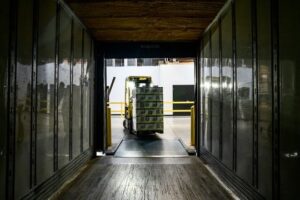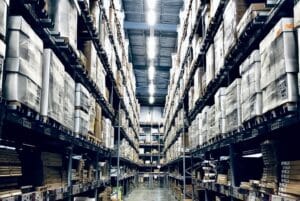You are
Optimization of industrial logistics with a WMS
The challenges of industrial logistics
In the field of industrial logistics, challenges often appear as soon as a certain threshold of complexity is reached in the management of raw materials and semi-finished products. At this stage, the integration of a WMS becomes essential to maintain optimal coordination of flows.
Optimization of production flows
Industrial companies must manage a large number of resources and equipment, which requires strict inventory control and precise supply planning. Software solutions make it possible to:
- Automate inventory management ,
- Plan supplies in real time to avoid production interruptions,
- handling and internal transport operations

Growth speed and system flexibility
Unlike traditional small-scale distribution models, growth in the industrial sector involves an increase in production capacities and a continuous adaptation of logistics processes. Logistics solutions must be able to quickly adapt to changes in the production chain without requiring massive investments in new infrastructure.
Flexibility of management systems
An efficient and adaptable WMS is essential for industrial environments. It allows:
- Smooth integration with production management systems (ERP),
- Dynamic resource planning based on orders,
- Centralized management of information flows for better visibility across all operations.
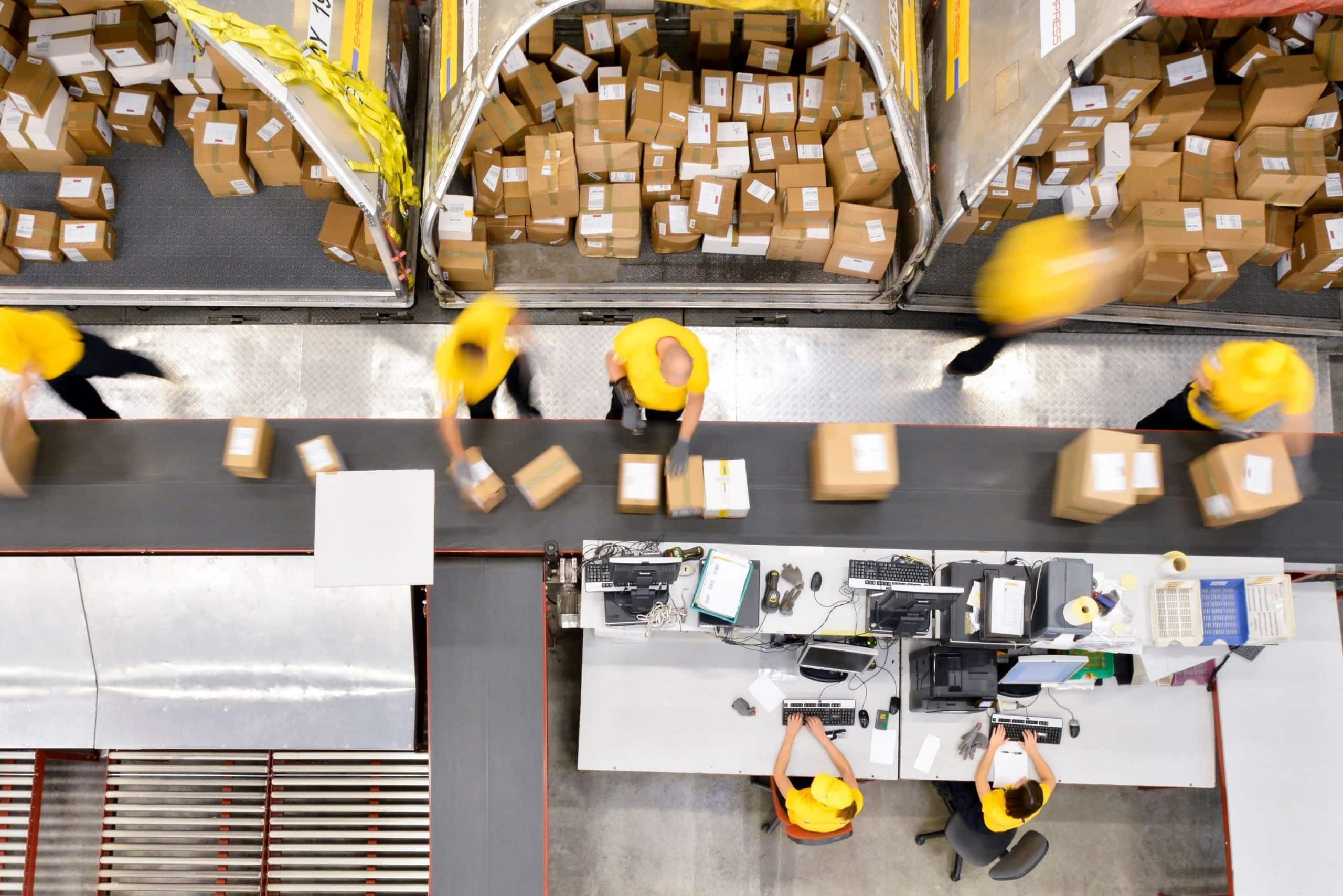
Order and returns management
Industrial logistics is not limited to supply management; it also includes tracking finished products , managing shipments and processing returns. Particular challenges include:
- Coordination of deliveries of finished products to various storage points or directly to customers,
- Management of reverse flows for non-compliant products or products requiring modifications.
Challenges by type of production
Each type of production presents unique challenges:
- Automotive industry : Requires precise management of components and subassemblies to avoid delays.
- Agri-food : Requires strict management of expiration dates and real-time traceability.
- Electronics : Requires precise inventory management of sensitive components.
Receipt, preparation and shipping in an industrial environment
- Reception : Integration of raw materials into the production flow with rigorous quality controls.
- Preparation : Coordination of human and material resources to guarantee fluidity of the assembly line.
- Shipping : Optimization of packaging and loading processes to meet delivery times.
Automation and efficiency: key role of management systems
Automated solutions play a crucial role in optimizing industrial operations. Here are some essential features:
- Seamless integration with production systems for centralized management.
- Automation of receiving, storage and shipping processes to reduce errors.
- Advanced inventory management : Intelligent algorithms for automatic replenishment.
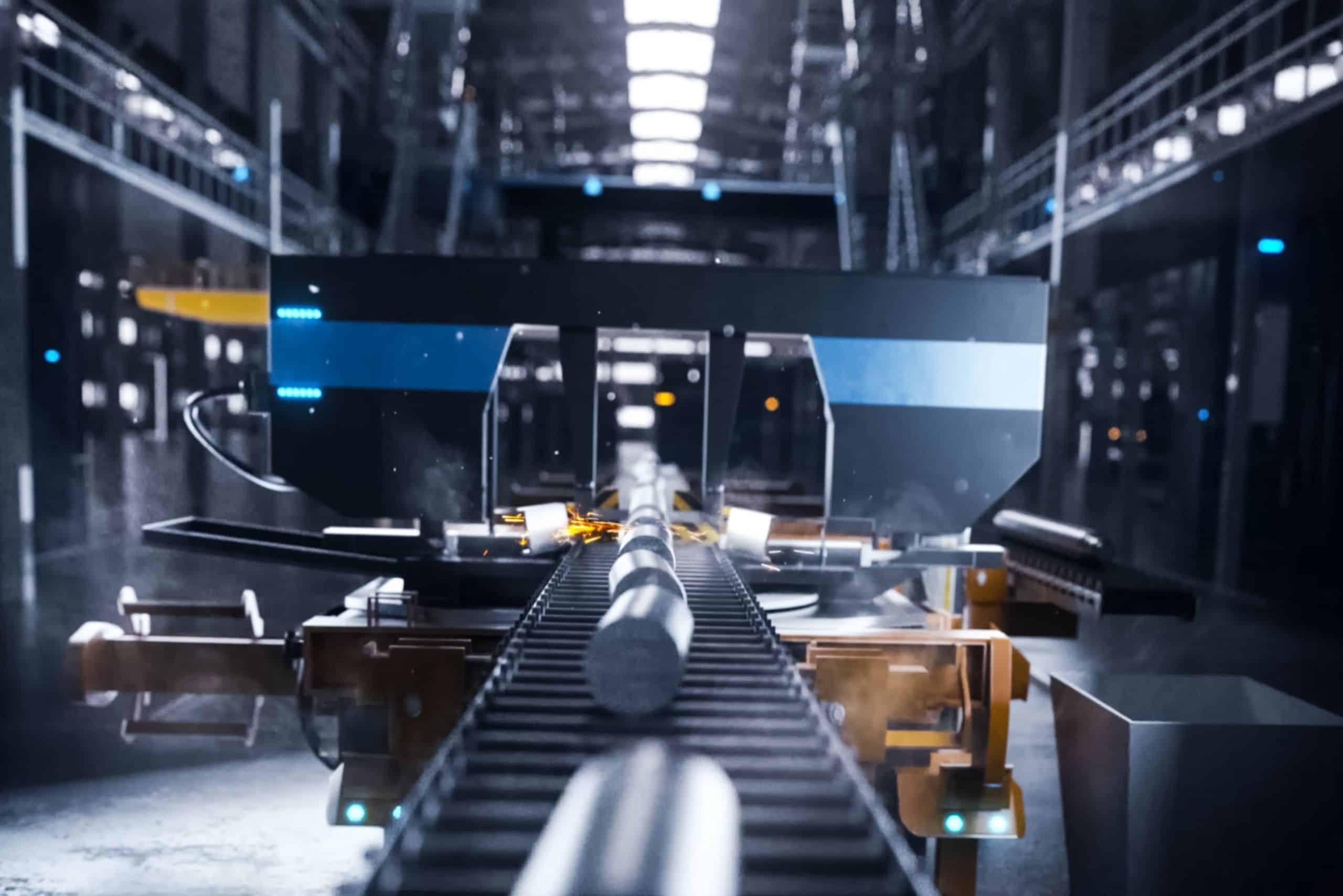
Emerging Trends in Industrial Logistics
Certain trends stand out in the industrial sector:
- Sustainability : Reduction of the carbon footprint and optimization of logistics processes for greener production.
- Robotization : Using robots to automate repetitive tasks and improve accuracy.
- Increased traceability : Thanks to the Internet of Things (IoT) and blockchain, companies can now track and control every step of the supply chain.
How to choose the right WMS for your industrial logistics
To choose the appropriate logistics solutions, here are some criteria to take into account:
- Scalability and flexibility : The system must adapt to business growth and variations in production cycles.
- Easy integration with existing platforms (ERP, MES, TMS).
- Automation capabilities for production and inventory management processes.
- Total cost of ownership : Consider maintenance and technical support costs.
- User Experience : An intuitive interface facilitates employee adoption and reduces training costs.
Book a demo
Contact us to book your EGO WMS demo
Ready to find out how we convinced more than 580 customers to optimize their logistics with EGO WMS?
Please fill out these fields
to book a demo




